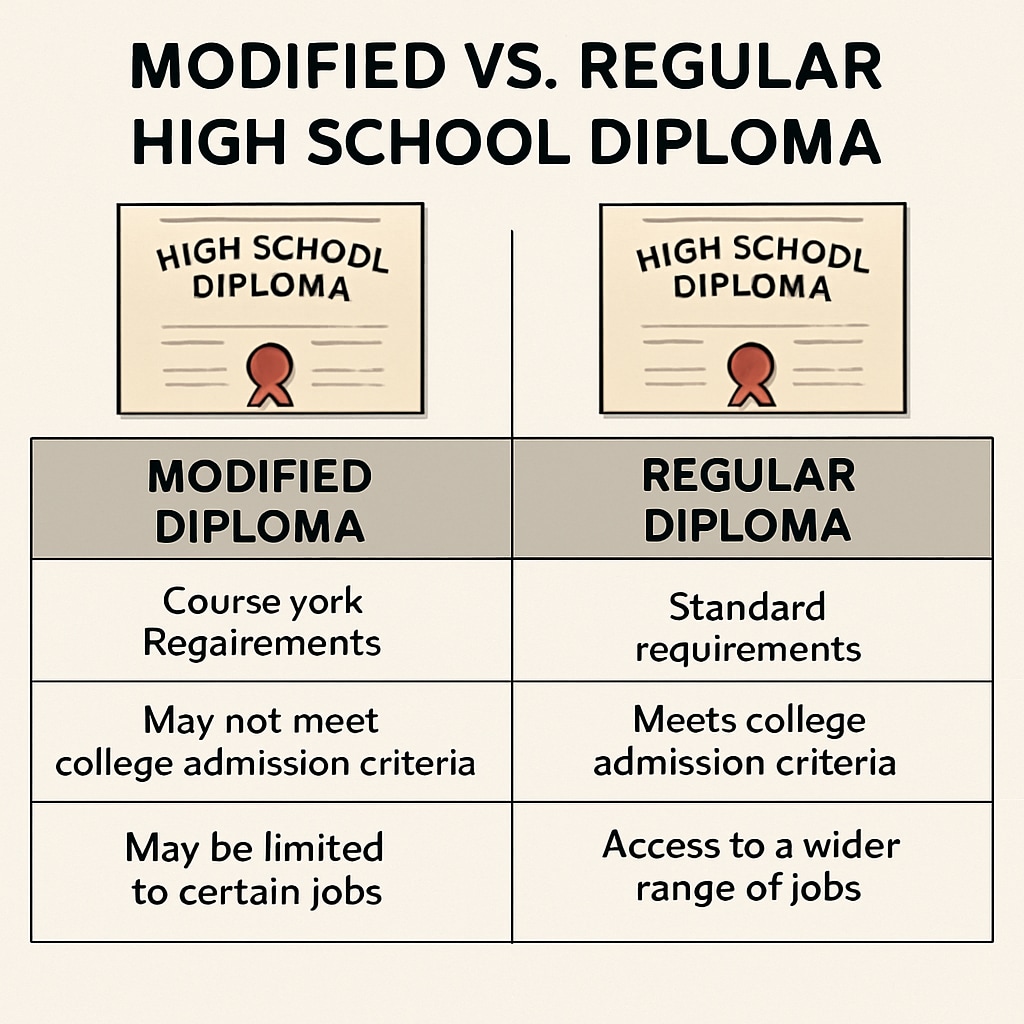For individuals holding a modified high school diploma, regret about academic choices can weigh heavily. Many wonder if they can turn back time and convert their modified diploma into a regular one, seeking not only educational equity but also a sense of personal achievement. This article delves into the differences between modified and regular diplomas, explores the feasibility of transitioning between the two, and provides actionable advice for overcoming academic regret.
Understanding the Differences Between Modified and Regular Diplomas
Modified high school diplomas are typically designed for students who need accommodations due to learning disabilities or other challenges. While they signify completion of high school, they often lack the same academic rigor or coursework requirements as regular diplomas. As a result, modified diplomas may not meet the eligibility criteria for certain colleges, military enlistment, or employment opportunities.
Regular diplomas, on the other hand, reflect the completion of standard academic requirements, including mandatory coursework in subjects like mathematics, science, and language arts. This distinction can create barriers for modified diploma holders seeking further education or career advancement.

Can a Modified Diploma Be Converted to a Regular Diploma?
While it is technically not possible to “convert” a diploma, there are pathways to achieve similar academic credentials. Options include:
- Adult Education Programs: Many community colleges offer high school equivalency programs or adult education courses that allow individuals to meet standard diploma requirements.
- GED (General Educational Development): Obtaining a GED can serve as an alternative to a regular high school diploma. It demonstrates proficiency in core subjects and is widely recognized by employers and colleges.
- Supplemental Coursework: Some schools or institutions may allow modified diploma holders to complete additional classes to meet regular diploma standards.
These avenues require time, effort, and commitment, but they provide a meaningful way to address academic regrets and open doors to new opportunities.

Overcoming Regret and Embracing Academic Growth
For those who regret not earning a regular diploma, the emotional impact can be significant. However, it is important to view this situation not as an end, but as an opportunity for growth. Here are some practical strategies:
- Set Clear Goals: Identify what you hope to achieve by pursuing further education or credentials, such as enrolling in college or securing a better job.
- Seek Support: Connect with counselors, mentors, or support groups who can guide you through the process of improving your academic qualifications.
- Focus on Long-Term Benefits: Remember that investing in education can lead to enhanced career prospects and personal fulfillment.
As a result, overcoming regret can become a powerful motivator for lifelong learning and self-improvement.
Looking Ahead: What This Journey Represents
The journey from a modified diploma to attaining equivalent credentials is more than just academic—it represents resilience, determination, and the willingness to embrace change. Whether through GED programs, adult education, or other pathways, individuals can redefine their futures and achieve their goals.
Ultimately, regret about past academic choices does not have to dictate your future. With the right resources and support, the transition from a modified diploma to new opportunities is both achievable and rewarding.
Readability guidance: This article uses short paragraphs and lists to ensure clarity. It balances technical information with accessible language, aiming to inspire and educate readers about their options.


